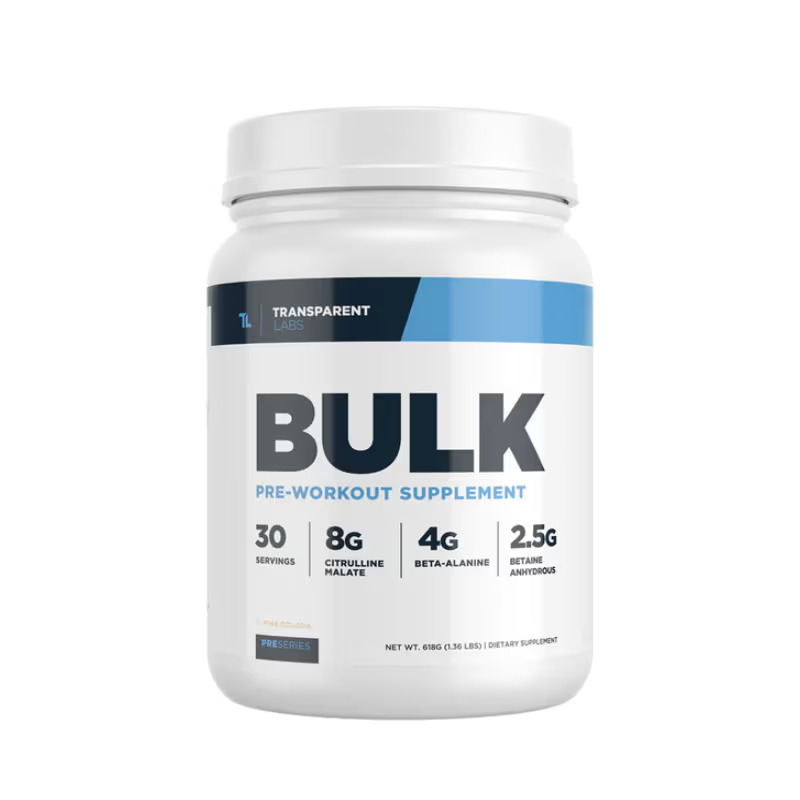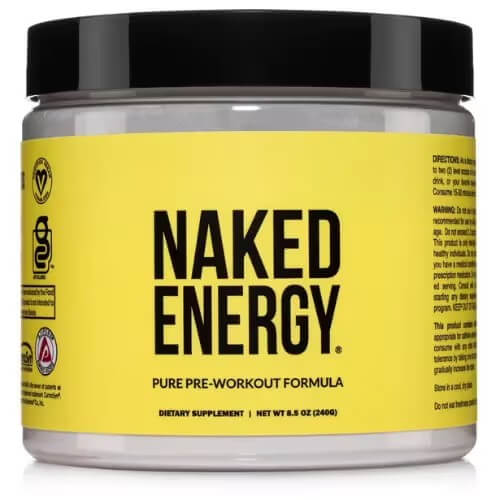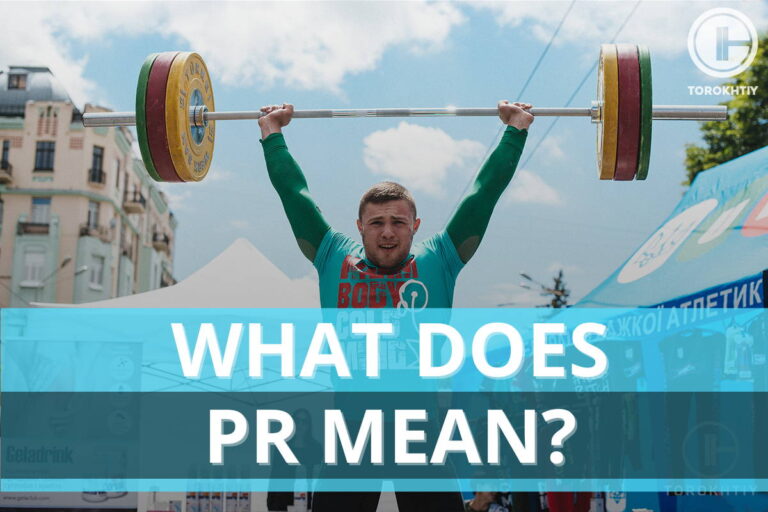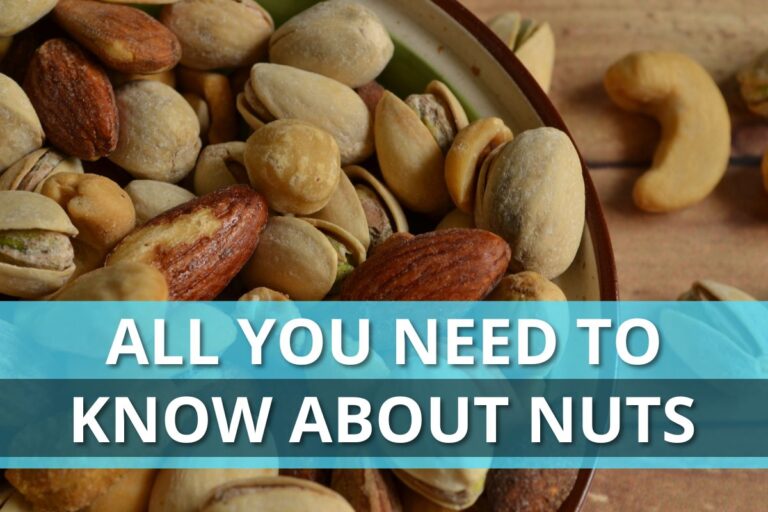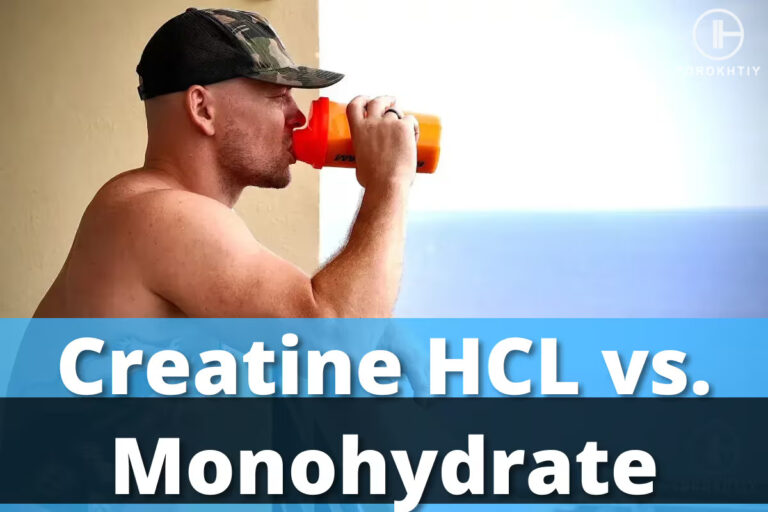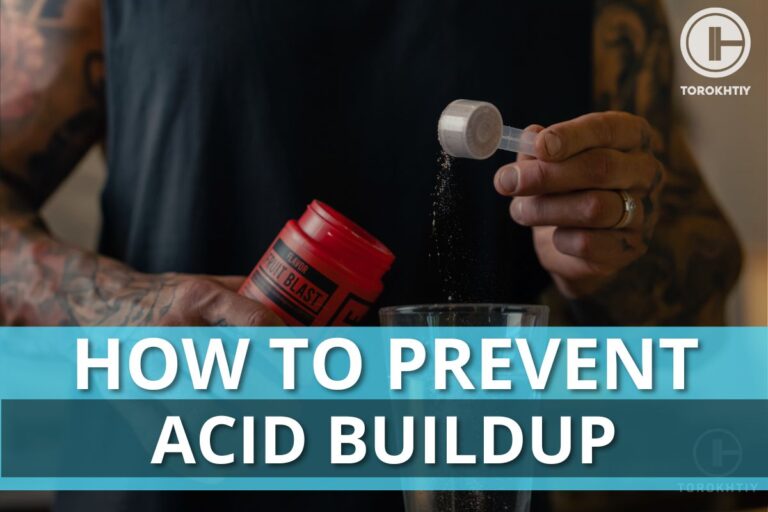Does Pre Workout Make You Gain Weight?
In this article, you will find out the answer to the question “Does pre workout make you gain weight” and what component of this supplement can actually contribute to weight gain. You will also get recommendations on what to consider and how to choose a pre workout for weight gain.
Does pre workout make you gain weight? No, but they often contain creatine, which may cause water retention. Some products contain significant amounts of carbohydrates, which should be factored into the overall meal plan so that they do not become part of a hypercaloric diet that leads to weight gain.
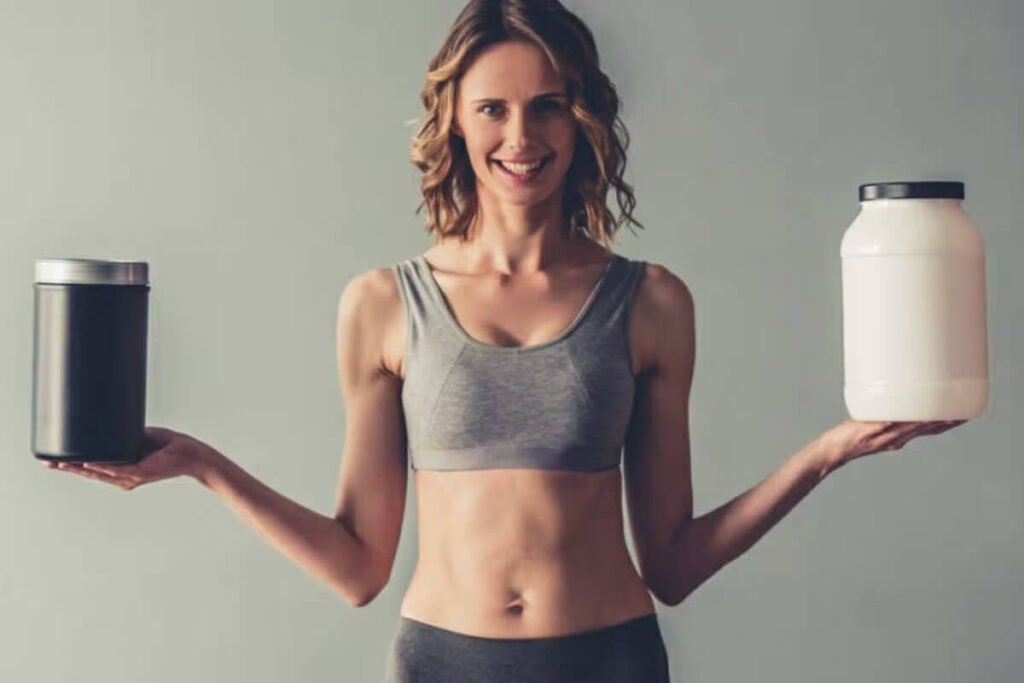
Does Pre Workout Make You Gain Weight?
In order to gain weight, you need to consume more calories than your body spends.
However, pre-workout as a type of supplement is not a source of a significant amount of calories and therefore generally cannot be considered as the culprit of weight gain, especially in the form of fat mass. After all, the key ingredients of pre-workouts with performance-enhancing effects (such as caffeine, beta-alanine, creatine) do not contain calories.
In fact, most pre-workouts contain zero to few calories, which may come from carbohydrates and / or amino acids (such as BCAAs, which may be found in this type of supplement).
If you look at the Supplement Facts of the most popular pre-workouts, one serving contains 0-3 g of carbohydrates, from 0 to several grams of BCAA, and the total calorie content of a serving is from 5 to 20 kcal. That’s not enough to blame pre-workouts for fat gain.
However, a small amount of carbohydrates should still count towards the total amount of carbohydrates you consume.
Why Are You Gaining Weight When Taking Pre-workout?
Let’s consider several main reasons why taking pre-workouts can lead to weight gain.
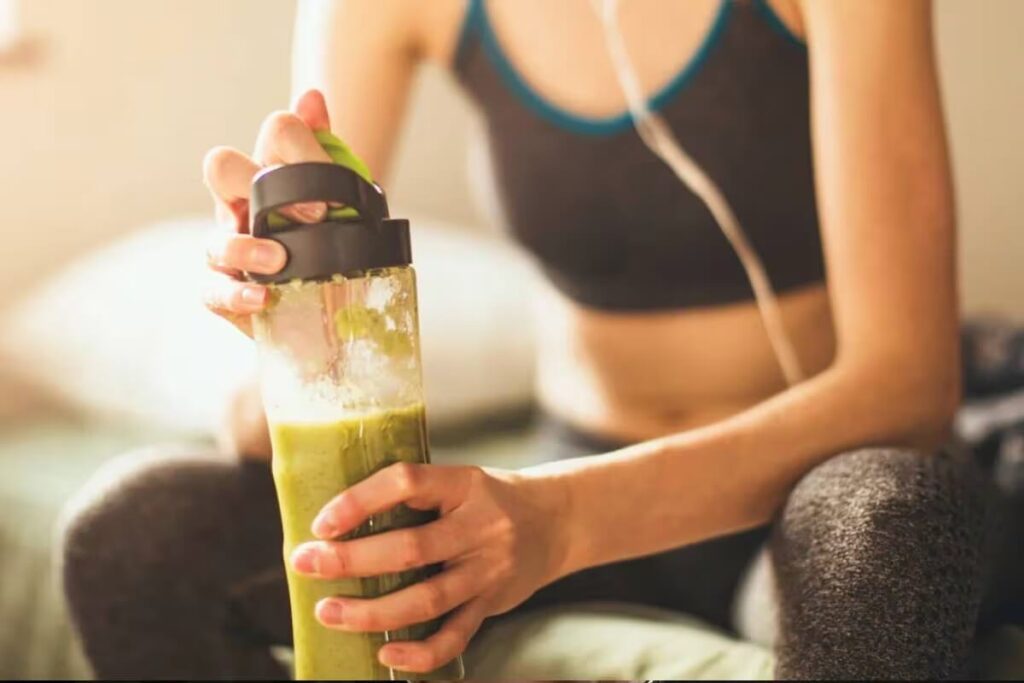
1. Increased Water Retention Due to Creatine
Creatine is associated with weight gain / increased body water due to fluid retention and perhaps due to decreased urine output. However, water retention is primarily relevant only for the first days or the first week of supplementation when it is taken with a loading phase.
If an acute increase in weight is observed, you can expect gaining 0.6-1 kg, but the maximum values can reach 2 kg. On the other hand, in the long term creatine may not lead to water retention.
It is also important to distinguish between weight gain and fat mass gain, since creatine can increase overall body mass due to fluid retention, but does not lead to fat gain.
If you are concerned about water retention and associated weight gain, you may want to:
- Avoid taking creatine as a single-component supplement,
- Use creatine without a loading phase to avoid potential weight gain from water retention. This recommendation is best for those who still want to get the benefits of creatine while reducing the likelihood of water retention.
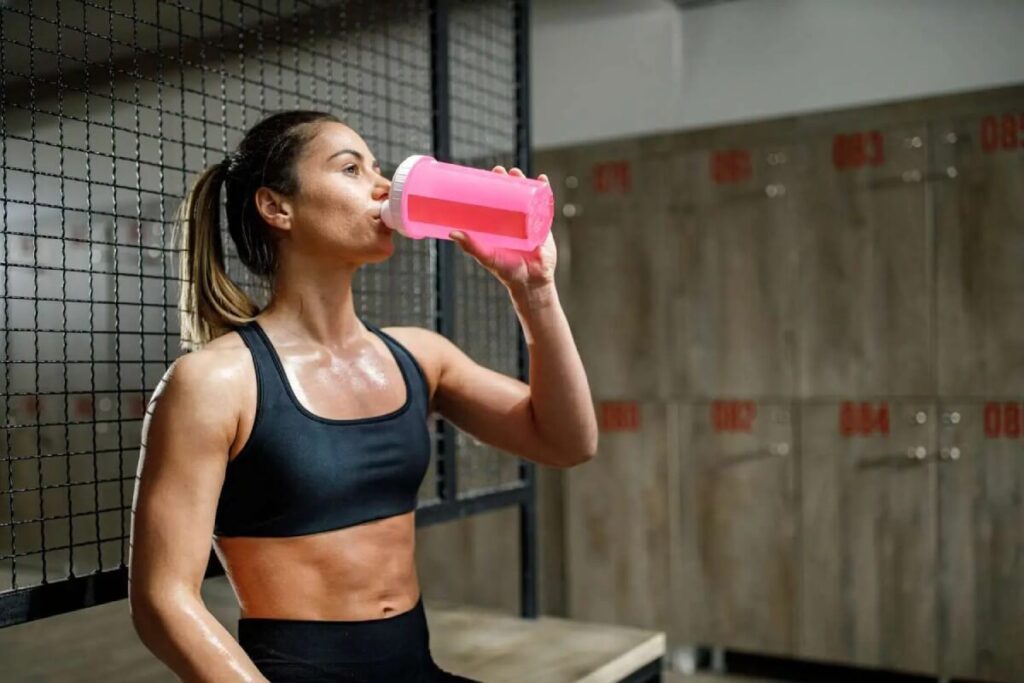
It is also worth clarifying one important detail.
Unless you’re taking creatine as a daily single-component supplement, the dose of creatine from a pre-workout won’t be enough to cause water retention, especially considering that you need to consume ~20-25g of creatine per day during the loading phase, which is more likely to cause water retention.
After all, a serving of a pre-workout containing creatine usually has only around 1-2 g of creatine.
Also, keep in mind that creatine is usually taken daily, while pre-workout is only taken on training days. So if your only source of creatine is a pre-workout, the likelihood of fluid retention and associated weight gain is even lower.
So my overall point is that in order to blame creatine for fluid retention, it has to be taken daily, especially with the loading phase at the very beginning. However, even in this case, water retention will be limited to a maximum of 2 kg at the initial stage of supplementation.
Anyway after giving up creatine, body mass, which increased due to water retention, will decrease over a period of 4 to 6 weeks.
2. Increased Muscle Mass
Pre-workouts contain components that promote increasing in both training intensity and training volume. So it’s no surprise that these supplements can promote muscle gain, especially in the long term.
For example, caffeine, creatine, beta-alanine, as well as citrulline and betaine contribute to increasing training volume and, thus, to building muscle mass. Let me remind you that the total training volume is one of the key variables for muscle hypertrophy.
Moreover, creatine has long been known as the best dietary supplement for building muscles. Although the latest systematic review with meta-analysis suggests that the effect is very modest, it is still the best supplement available for building muscle mass when combined with resistance training.
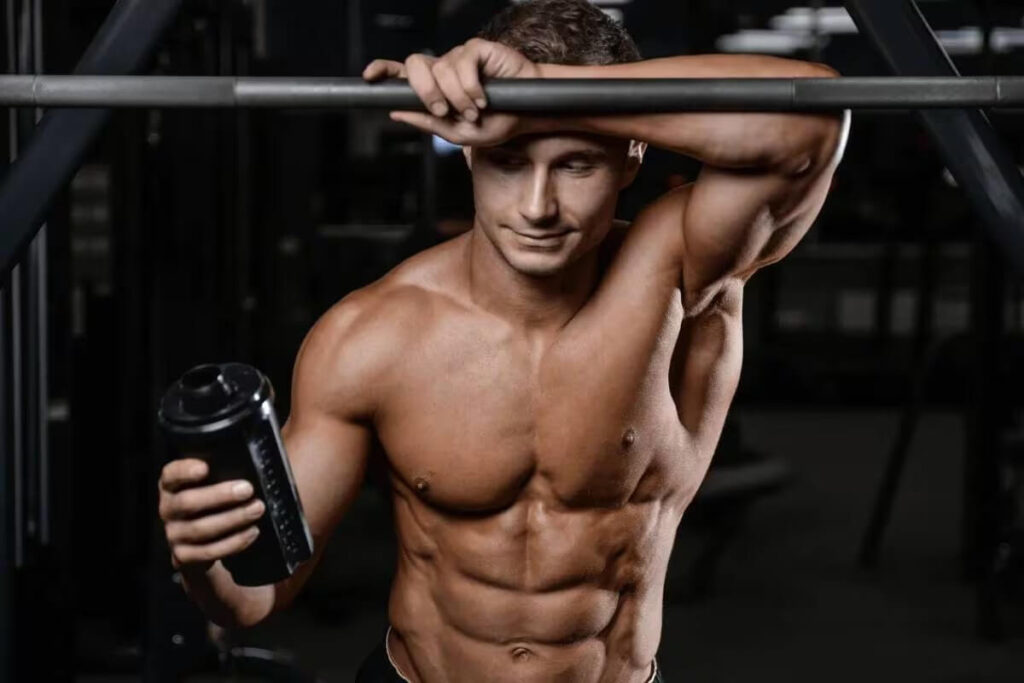
3. Overeating and Fat Gain
Does pre workout make you fat? No, because we gain fat from general overeating, i.e. excess calories. And while pre-workouts generally only provide between 0 and 20 kcal per serving, some products contain significant amounts of added sugar or other sources of carbohydrates (e.g. 6-10 grams per serving).
This can be a significant portion of carbohydrates, especially for those who follow a very low carb diet plan. Therefore, if you use such a pre-workout, a significant amount of carbohydrates from it can become a part of a hypercaloric diet that leads to weight gain.
There are 2 options – either change the pre-workout to one that contains from 0 to several grams of carbohydrates, or reduce the amount of a carbohydrate in one meal to compensate for carbs you get from the pre-workout.
And remember that the calories from even the most high-calorie pre-workout will still only make up a very small part of your total caloric intake. Therefore, the key focus in the first place should be on your nutrition plan.
When gaining weight, it is necessary to make changes to your overall diet and activity, as well as remember the key success factor – consistency.
Pre-workouts Ingredients for Gaining Weight
Does pre workout cause weight gain? As discussed above, creatine and carbohydrates can promote weight gain. However, the reverse principle of weight loss works here. Unless there is a long-term caloric surplus from the overall diet, neither creatine nor a significant amount of carbohydrates from pre-workout will help.
Therefore, if your goal is to gain muscle mass, first of all create a meal plan with a sufficient amount of calories and protein, and consider the pre-workout only as a cherry on the cake, which will help increase the intensity and training volume.
Ultimately, resistance training with progressive overload in combination with a hypercaloric meal plan and adequate protein will be the driving force behind muscle building.
Recommended Pre Workout Without Creatine and Carbs – BULK from the Transparent Labs
If you want to try a pre-workout that does not contain creatine and carbohydrates, BULK from the Transparent Labs does not have many competitors. This product contains 200 mg of organic caffeine from Green Coffee Bean, as well as large doses of beta-alanine, citrulline malate and betaine.
With this product, you can count on a noticeable improvement in the context of increasing the training volume, delaying the onset of fatigue, and increasing the pumping effect! However, be prepared for a tingling sensation from the large single dose of beta-alanine. Don’t worry, it’s harmless.
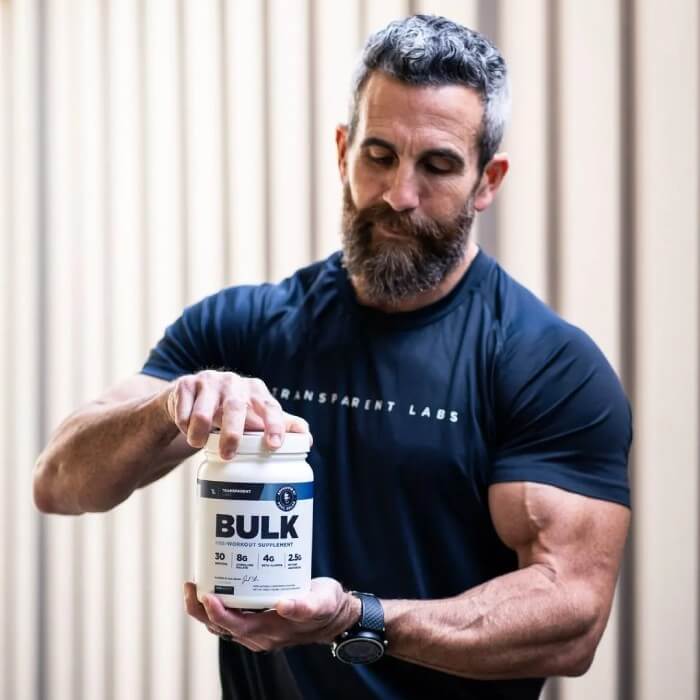
Note that 200 mg of caffeine may be the dose that will improve physical performance and less likely cause side effects, than higher doses. And with the addition of 200 mg of L-Theanine, anxiety-producing stimuli of caffeine can be mitigated, as theanine exerts the opposite effects on arousal.
Recommended Pre Workout for Weight Gain – Naked Energy
If you need a pre-workout that contains creatine, we recommend Naked Energy. It contains 200 mg of caffeine, 2 g of beta-alanine and 1 g of the most studied and most effective form of creatine monohydrate.
However, keep in mind that to get the benefits, the total daily dose of creatine without a loading phase should be 3-5 grams. As with the previous product, be prepared for tingling due to the high dose of vitamin B3 + beta-alanine.
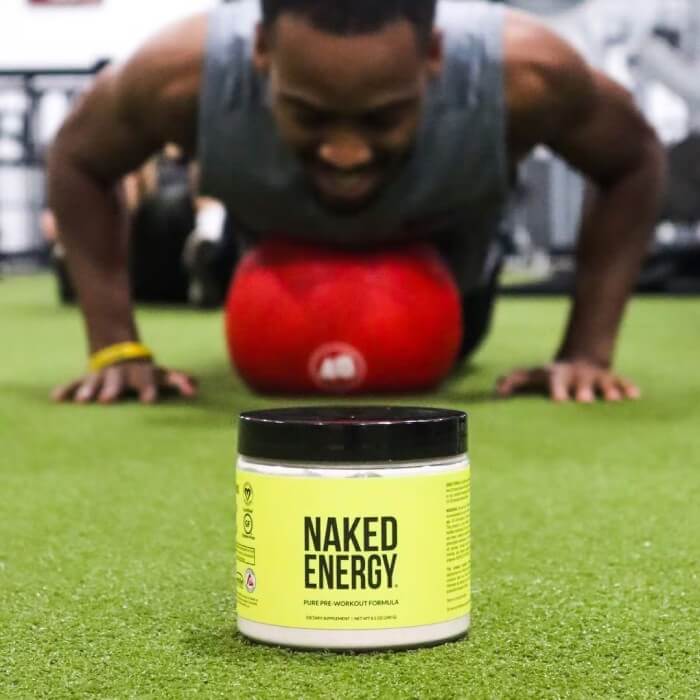
Note that Naked Energy comes in an unflavored version with no added sugar, as well as 6g and 9g carb versions in Citrus and Fruit Punch flavors. So if you want to find a pre workout for weight gain, flavored versions of this product can be a good choice. However, don’t forget that added sugars should be limited.
FAQ
Does Pre-workout Make You Look Bigger?
Yes, both immediately after the exercise session and in the long term. The ingredients with an acute effect (caffeine, citrulline, betaine) may cause an increased pump during and immediately after training. Whereas creatine and beta-alanine can promote muscle gain in the long term, as well as increased pumping through improved muscular endurance.
Does Pre Workout Make You Fat?
No, because we gain fat mass from excess energy, which cannot be obtained from the pre-workouts.
Does Pre Workout Make You Hungry?
The feeling of hunger and its severity can be influenced by factors that are not even related to the pre-workout. For example, exercise itself can provoke hunger.
A feeling of hunger or, conversely, a loss of appetite can also be influenced by the type (strength vs aerobic) of exercise, the duration (short or long and exhaustive), the intensity (high or low), whether you train in a fasted state or not, and other factors.
The timing of the pre-training meal in relation to the start of the exercise session can also affect hunger level. Since the pre-workout is taken before training sessions, people may draw incorrect conclusions that it is the pre-workout or some ingredient that could cause an acute feeling of hunger.
Although, in fact, it could be caused by factors that are not related to the pre-workout itself.
Conclusion
Can pre workout make you gain weight? No. However, they may contain creatine, which can cause water retention at the very beginning of its supplementation, especially if you follow a loading phase. But the amount of creatine in a serving of pre-workout is not enough to blame it for weight gain (read the explanation above).
Also, pre-workouts can contain a significant amount of carbohydrates per serving, which should be taken into the total caloric content of your meal plan. After all, overeating leads to weight gain, not pre-workout.
Tell us about your experience of taking pre-workouts! Do you think they help you reach your goals more easily?
Also read:
- Best Vegan Pre Workout
- Best Pre Workout on Keto
- Best Pre Workout Without Artificial Sweeteners
- Pre Workout Safe for Breastfeeding
- How Many Scoops of Pre Workout
- Can You Take Pre Workout While Fasting
- Does Pre Workout Have Calories
- How Long Does Pre Workout Last
- Best Pre Workout for Muscle Gain
References:
- The Effects of Creatine Supplementation Combined with Resistance Training on Regional Measures of Muscle Hypertrophy: A Systematic Review with Meta-Analysis // mdpi: https://www.mdpi.com/2072-6643/15/9/2116
- Position of the Academy of Nutrition and Dietetics, Dietitians of Canada, and the American College of Sports Medicine: Nutrition and Athletic Performance // Pubmed: https://pubmed.ncbi.nlm.nih.gov/26920240/
- Supplements/ Benefits and risks of using supplements and sports foods // Ais: https://www.ais.gov.au/nutrition/supplements/group_a#creatine
- Common questions and misconceptions about creatine supplementation: what does the scientific evidence really show? // Ncbi: https://www.ncbi.nlm.nih.gov/pmc/articles/PMC7871530/
- Resistance Training Variables for Optimization of Muscle Hypertrophy: An Umbrella Review // Frontiersin: https://www.frontiersin.org/articles/10.3389/fspor.2022.949021/full
- AIS SPORTS SUPPLEMENT FRAMEWORK CAFFEINE // Ais: https://www.ais.gov.au/__data/assets/pdf_file/0004/1000498/36194_Sport-supplement-fact-sheets-Caffeine-v6.pdf
Why Trust Us?
With over 20 years in Olympic Weightlifting, our team does its best to provide the audience with ultimate support and meet the needs and requirements of advanced athletes and professional lifters, as well as people who strive to open new opportunities and develop their physical capabilities with us.
By trusting the recommendations of our certified experts in coaching, nutrition, dietology, and sports training programming, as well as scientific consultants, and physiotherapists, we provide you with thorough, well-considered, and scientifically proven content. All the information given in the articles concerning workout programming, separate exercises, and athletic performance, in general, is based on verified data. We ensure that you can rely on our professionals’ pieces of advice and recommendations that can be treated as personalized ones which will benefit you and fully meet your needs.
The product testing process is described in more detail here
Author: Oleksandr Maksymenko
Certified Sports Nutritionist,
MSc Sports Dietetics
Specializing in: Weight management, Fitness / Sports nutrition
Oleksandr is a professional fitness nutritionist certified by the Fitness Professional Association (FPA). He follows the principles of evidence-based dietetics and fosters a healthy relationship with food in his clients, ensuring there are no strict prohibitions on their favorite foods or frequent lapses. His primary goal is not only to achieve results for you but also to sustain them over the long term, all while enjoying tasty and delicious food.

